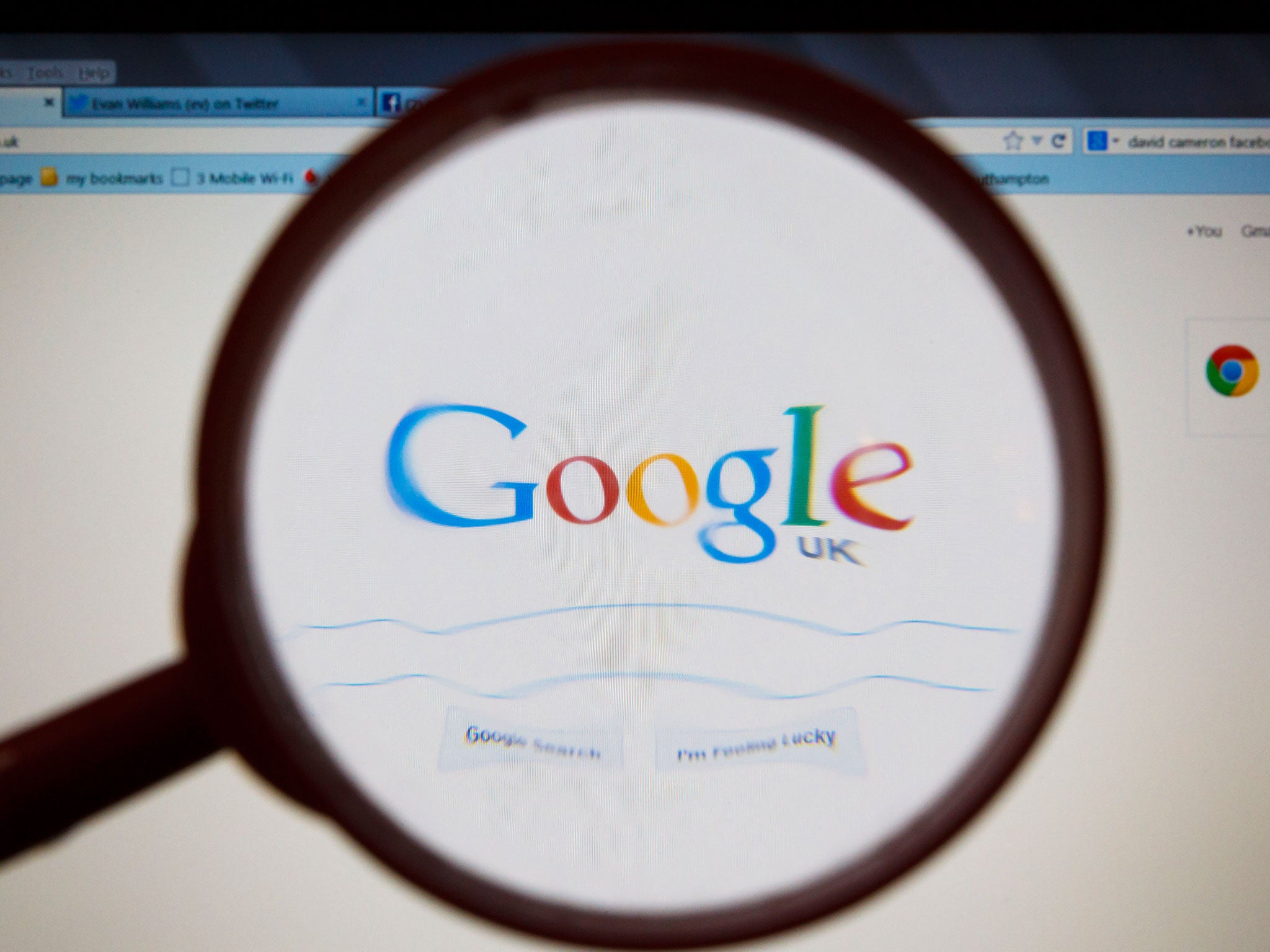Google in court again over ‘right to be above British law’ on alleged secret monitoring
Internet giant faces allegations that it used 'clandestine' tracking to monitor British users of the Safari web browser

Your support helps us to tell the story
From reproductive rights to climate change to Big Tech, The Independent is on the ground when the story is developing. Whether it's investigating the financials of Elon Musk's pro-Trump PAC or producing our latest documentary, 'The A Word', which shines a light on the American women fighting for reproductive rights, we know how important it is to parse out the facts from the messaging.
At such a critical moment in US history, we need reporters on the ground. Your donation allows us to keep sending journalists to speak to both sides of the story.
The Independent is trusted by Americans across the entire political spectrum. And unlike many other quality news outlets, we choose not to lock Americans out of our reporting and analysis with paywalls. We believe quality journalism should be available to everyone, paid for by those who can afford it.
Your support makes all the difference.A legal battle involving Google resumed today in a landmark trial that will decide whether or not British courts are the appropriate forum for dealing with claims of ‘secret tracking’ by the internet giant.
Facing allegations that it used “clandestine” tracking to monitor British users of the Safari web browser, Google unsuccessfully argued earlier this year that, while there were occasions when it could be sued in the UK, on this occasion the High Court did not have jurisdiction to try the claims.
It is now trying to have the decision overturned, with lawyers for Google saying that the group which brought the case should have launched its claims in the United States, where the company is based.
The claims have been brought by a group known as Safari Users Against Google’s Secret Tracking, which includes Judith Vidal-Hall, a former editor of Index on Censorship magazine, and IT security company directors Robert Hann and Marc Bradshaw. The case is being fought on behalf of about 100 people in Britain and, if it is won, could open Google up to claims from millions more people who were using Apple equipment in 2010.
The company is accused of bypassing security settings on the Safari browser so that it could track activity and target users with personalised advertisements.
The clandestine tracking and collation of internet usage, between summer 2011 and spring 2012, has caused distress and embarrassment, according to the group – which filed a group-action lawsuit against Google in 2013.
Dan Tench, a partner at the law firm Olswang, which is representing the group, insisted: “The Court of Appeal hearing will decide whether British consumers actually have any right to hold Google to account in this country.
“This is the appropriate forum for this case – here in England where the consumers used the internet and where they have a right to privacy.”
The group said that Google’s argument that the claims should have been launched in the US was a “misconceived” attempt to block a trial and the company should “answer to British justice”.
Mr Justice Tugendhat ruled in January: “I am satisfied that there is a serious issue to be tried in each of the claimant’s claims for misuse of private information.” He added: “The claimants have clearly established that this jurisdiction is the appropriate one in which to try each of the… claims.”
But Antony White QC, representing Google, told the Court of Appeal yesterday: “The judge wrongly dismissed the appellant’s application to set aside service of proceedings out of the jurisdiction, and his ruling should be reversed.”
However, Hugh Tomlinson QC, representing the Safari Users Against Google’s Secret Tracking group, argued the judge was right to rule that misuse of private information was a civil wrong for the purposes of deciding whether it could be heard in Britain.
A Google spokesperson said today: “A case almost identical to this one was dismissed in its entirety in the US. We don’t think that this case meets the Court’s standards required for it to be heard…”
The complex appeal, in which the Information Commissioner, Christopher Graham has intervened, is expected to continue into tomorrow when the judges are likely to reserve their ruling until early 2015.